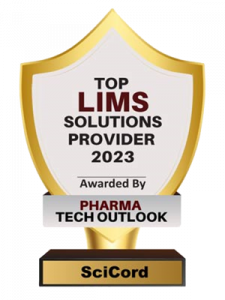Ensuring Compliance: The Crucial Role of FDA Regulations for ELNs and LIMS in the Pharmaceutical Industry
In the rapidly evolving landscape of scientific research and development, Electronic Laboratory Notebooks (ELNs) and Laboratory Information Management Systems (LIMS) have become essential tools. They offer a convenient and efficient way to store, manage, and analyze data, thereby enhancing productivity and accuracy in laboratories. However, in the pharmaceutical industry, the utility of these systems extends beyond mere data management; compliance with regulations set by the Food and Drug Administration (FDA) is paramount.
I. The Importance of Compliance
The FDA enforces strict regulations to ensure the safety, efficacy, and quality of pharmaceutical products. Compliance with these regulations is critical for several reasons:
1. Ensuring Data Integrity and Traceability:
- Data Integrity: Accurate and reliable data is the cornerstone of pharmaceutical research and development. Compliance with FDA regulations ensures that data is recorded, processed, and maintained in a manner that preserves its integrity.
- Traceability: Regulatory compliance mandates detailed audit trails, which are essential for tracking the history of data and ensuring traceability. This is crucial for identifying any deviations and implementing corrective actions.
2. Meeting Regulatory Requirements:
- 21 CFR Part 11: This FDA regulation outlines the criteria under which electronic records and electronic signatures are considered trustworthy, reliable, and equivalent to paper records. Compliance with 21 CFR Part 11 is mandatory for ELNs and LIMS used in regulated environments.
- Good Laboratory Practice (GLP) and Good Manufacturing Practice (GMP): Adhering to GLP and GMP guidelines ensures that laboratory practices and manufacturing processes meet the required quality standards.
3. Facilitating Regulatory Inspections and Audits:
- Readiness for Audits: FDA inspections and audits are routine in the pharmaceutical industry. Compliance with regulatory standards ensures that laboratories are always prepared for inspections, thereby reducing the risk of non-compliance penalties.
- Transparency: Maintaining detailed and accurate records in ELNs and LIMS enhances transparency and facilitates smoother audits.
II. Key Features of Compliant ELNs and LIMS
To meet FDA regulations, ELNs and LIMS must incorporate several key features:
1. Secure Data Storage and Access Control:
- User Authentication: Robust user authentication mechanisms are essential to ensure that only authorized personnel can access the system.
- Access Controls: Role-based access controls help in defining user permissions, ensuring that data access is restricted based on the user’s role and responsibilities.
2. Audit Trails:
- Detailed Logs: Comprehensive audit trails that record all data entries, modifications, and deletions are critical. These logs must be immutable and easily retrievable for audit purposes.
- Time Stamps: Accurate time stamps are necessary for all electronic records to ensure traceability and accountability.
3. Electronic Signatures:
- Compliance with 21 CFR Part 11: Electronic signatures must be implemented in accordance with FDA guidelines, ensuring that they are as reliable and trustworthy as handwritten signatures.
- Signature Records: Systems must maintain records of electronic signatures, including the name of the signer, the date and time of the signature, and the purpose of the signature.
4. Data Encryption and Backup:
- Encryption: Sensitive data must be encrypted both in transit and at rest to protect against unauthorized access and data breaches.
- Regular Backups: Regular data backups are essential to prevent data loss and ensure data recovery in case of system failures.
5. Validation and Verification:
- System Validation: ELNs and LIMS must undergo rigorous validation to demonstrate that they function correctly and meet all regulatory requirements.
- Regular Reviews: Continuous monitoring and regular reviews of the systems are necessary to ensure ongoing compliance.
III. The Path Forward
As the pharmaceutical industry continues to embrace digital transformation, the adoption of ELNs and LIMS will only increase. However, with this technological advancement comes the responsibility of ensuring that these systems comply with FDA regulations. By doing so, laboratories can not only enhance their efficiency and productivity but also safeguard the integrity and reliability of their data.
IV. Conclusion
Compliance with FDA regulations is not just a legal requirement but a fundamental aspect of maintaining high standards in pharmaceutical research and manufacturing. ELNs and LIMS that meet these regulatory standards provide a robust framework for data management, ensuring data integrity, traceability, and security. As such, they are indispensable tools for any pharmaceutical laboratory committed to achieving excellence in their scientific endeavors. By prioritizing compliance, laboratories can confidently navigate the complexities of the pharmaceutical industry and contribute to the development of safe and effective medical products.





Recent Comments